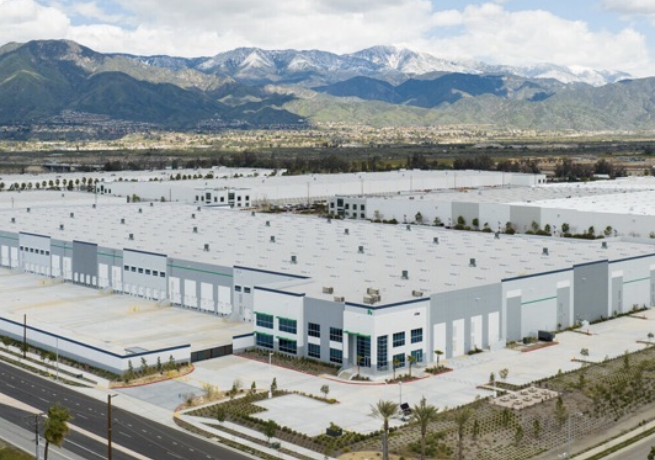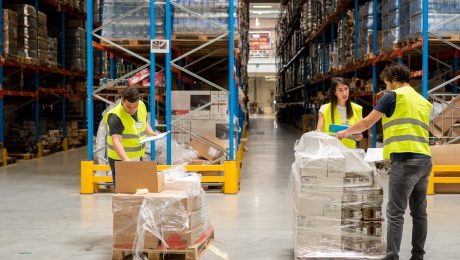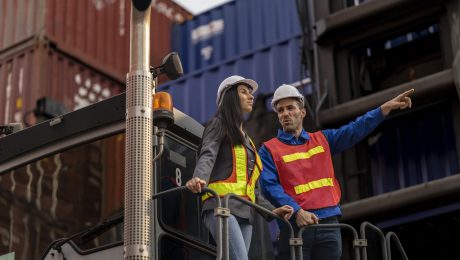The Importance of Efficient Retail Distribution
Efficient retail distribution is the backbone of any successful retail business. From ensuring that products move seamlessly from suppliers to consumers to saving costs and enhancing customer satisfaction, a well-optimized retail distribution strategy is critical in today’s competitive market.
But why is it so important to have efficient retail distribution? This blog explores how efficiency in retail distribution impacts cost savings, product availability, and customer satisfaction, while also creating synergies that drive overall business success.
The Impact of Retail Distribution on Cost Efficiency
One of the primary reasons to optimize retail distribution is the cost advantage it brings. A well-structured distribution system tackles inefficiencies head-on, driving significantly lower operational costs in three key areas:
Reduced Logistics and Transportation Costs
Efficient retail distribution means that logistics operations run like a well-oiled machine. Here’s how it minimizes costs:
- Optimized routing and delivery schedules save time and fuel, ensuring faster deliveries with fewer resources.
- Smarter warehouse management and inventory control reduce unnecessary handling and movement of goods.
- Consolidating shipments and leveraging economies of scale helps businesses negotiate better rates with carriers and reduces the cost-per-unit delivered.
- Lower transportation damage and loss rates result from strategic packaging and efficient handling processes.
Lower Inventory Holding Costs
Inventory management is often a costly affair, but a good retail distribution strategy can drastically reduce its impact.
- Accurate demand forecasting allows businesses to maintain just the right level of inventory at any given time, balancing stock and cash flow.
- Implementing just-in-time (JIT) inventory systems eliminates excessive build-up of stock while ensuring timely replenishment.
- Reducing the risk of spoilage and obsolescence, particularly for perishable or seasonal items, minimizes waste and storage fees.
Minimized Operational Overhead
Streamlined distribution operations lead to fewer errors and less waste of resources:
- Automated systems result in efficient order fulfillment and reduced processing time.
- Lower administrative costs for managing returns and complaints, which are often associated with mismanaged logistics, improve overall margins.
The Impact of Retail Distribution on Product Availability
Every retailer knows that product availability can make or break a sale. Efficient retail distribution plays a pivotal role in ensuring that customers find what they’re looking for exactly when they need it.
Ensuring Products Are in the Right Place at the Right Time
The foundation of retail success depends on delivering products to the markets that need them most:
- Effective forecasting and demand planning ensure inventory is always aligned with customer demand.
- Strategic inventory placement across distribution channels, such as regional warehouses or retail store locations, minimizes lead times.
- An agile and responsive supply chain allows businesses to adapt to fluctuating demand, especially during peak seasons.
Minimizing Stockouts and Lost Sales
Nothing frustrates a customer more than an out-of-stock product. Here’s how efficient distribution prevents stockouts:
- Real-time visibility of inventory levels across the supply chain enables proactive replenishment.
- Seamless communication and coordination between suppliers, distributors, and retailers reduce the likelihood of delays or shortages.
- Agile distribution networks ensure businesses can respond quickly to sudden surges in demand, mitigating lost sales opportunities.
Faster Speed to Market for New Products
When launching a new product, speed is critical to capitalizing on market demand:
- Efficient distribution systems establish fast, reliable channels for new products, ensuring they reach store shelves or online warehouses promptly.
- Reduced lead times from production to the point of sale ensure quicker customer access to new offerings.
The Impact of Retail Distribution on Customer Satisfaction
At its core, retail distribution is about delivering a seamless and satisfying experience for the customer. An efficient system contributes significantly to ensuring consumer loyalty and positive brand perception.
Timely and Reliable Delivery
Today’s customers expect fast and accurate deliveries. Retail distribution fulfills this by:
- Meeting customer expectations for rapid delivery without compromising on quality.
- Offering clear tracking updates and communication to foster trust throughout the customer’s purchase experience.
- Mitigating the impact of delivery delays and disruptions, which dampen customer satisfaction.
Product Availability and Assortment
Customers want their favourite products readily available, and efficient distribution ensures just that:
- Comprehensive product assortment enabled by well-stocked supply channels keeps shelves full and customers happy.
- The ability to find what they need without delays creates a hassle-free shopping experience.
Enriching the Overall Shopping Experience
A streamlined supply chain directly impacts how enjoyable the shopping experience is:
- Customers benefit from seamless order placement and quick fulfillment, leading to higher satisfaction.
- Hassle-free returns and exchanges, supported by robust reverse logistics, build customer trust.
- A perception of reliable and professional service enhances the brand image.
Building Customer Loyalty
Consistently exceptional experiences drive loyalty:
- Reliable delivery and availability build trust, creating returning customers.
- Satisfied customers are more likely to recommend the brand to others, leading to organic word-of-mouth marketing.
The Interconnected Nature of Cost, Availability, and Satisfaction
The beauty of an efficient retail distribution strategy lies in its ability to create synergies across cost control, product availability, and customer satisfaction. These aspects are far from independent; they thrive in a mutually supportive loop:
- Cost efficiency enables reinvestment into faster and more reliable delivery methods, which directly improve customer satisfaction.
- Effective inventory management boosts availability, which minimizes lost sales and increases revenue that can be allocated back into the system.
- Satisfied customers are more likely to engage with brands, driving higher sales volumes and greater economies of scale, further reducing costs.
A well-optimized distribution system doesn’t just benefit isolated departments; it has a ripple effect, lifting the performance of the entire business.
Get Efficient Retail Distribution with Lean Supply Solutions
Efficient retail distribution is no longer a luxury; it’s a necessity in a highly competitive retail landscape. By cutting costs, guaranteeing product availability, and improving customer satisfaction, businesses can strengthen their bottom line while building lasting customer loyalty.
If your business is looking to create a winning retail distribution strategy, talk to the team at Lean Supply Solutions. With over 20 years of experience in the logistics industry, we can streamline your retail distribution with our supply chain management systems.
Contact us today to discover how our expertise can help you create a retail distribution strategy that drives your business forward.
- Published in Blog
Sustainability in Free Trade Zones: Balancing Economic Benefits with Environmental Responsibility
Free Trade Zones (FTZs) play a critical role in driving global economic growth. These designated areas are designed to foster trade by reducing barriers like taxes and tariffs, ultimately boosting exports, creating jobs, and attracting foreign investment. However, while their economic contributions are undeniable, FTZs often come at a steep environmental and social cost. The heavy industry, massive logistics operations, and rapid development associated with FTZs create significant environmental challenges that cannot be ignored.
This blog explores how to achieve sustainability in FTZs and provides actionable strategies for ensuring these zones balance economic benefits with environmental responsibility.
Why Free Trade Zones Are Economic Powerhouses
Trade Facilitation and Efficiency
FTZs simplify international trade by minimizing bureaucratic hurdles, duties, and taxes. Businesses operating in FTZs benefit from streamlined customs processes, duty deferral options, and optimized supply chains that make cross-border trade faster, cheaper, and more efficient. This increased efficiency helps businesses stay competitive in the global market.
Investment Attraction and Job Creation
One of the primary purposes of FTZs is attracting foreign direct investment (FDI). With incentives like tax exemptions, reduced regulatory constraints, and infrastructure support, FTZs are magnets for multinational corporations. The influx of investment translates into substantial job creation, both directly within the zones and indirectly through supporting industries, strengthening local and national economies.
Cost Savings for Businesses
FTZs offer a financial advantage to companies by minimizing production costs and other expenses. These cost savings often stem from reduced import/export duties, less expensive logistics operations, and access to an efficient, centralized supply chain network.
Driving Economic Growth
By increasing exports and fostering regional industrial development, FTZs contribute significantly to national gross domestic product (GDP). For developing countries, FTZs are often seen as vital engines of growth and industrialization, bridging gaps in global trade participation.
The Environmental Shadow of Free Trade Zones
Resource Consumption
The rapid expansion and operations within these special economic zones (SEZs) demand vast amounts of energy and water. Manufacturing, warehousing, and transportation activities rely on consistent supplies, often leading to unsustainable land use changes and habitat destruction.
Pollution and Waste Generation
FTZs contribute significantly to pollution in various forms:
- Air Pollution from vehicle and factory emissions.
- Water Pollution through untreated industrial discharges into nearby water bodies.
- Massive Waste Production from industrial operations, packaging, and, increasingly, electronic waste (e-waste).
FTZs can even become “pollution havens,” attracting businesses seeking to exploit lax environmental regulations.
Carbon Emissions
The global logistics networks connected to FTZs generate enormous carbon footprints. Shipping, air freight, and road transport activities create substantial greenhouse gas (GHG) emissions. Within FTZs, high internal energy consumption further compounds the problem.
Challenges to Environmental Oversight
When it comes to the environmental impact of FTZs, they often face limited or inconsistent regulatory oversight due to jurisdictional complexities. This creates challenges in enforcing environmental compliance, particularly in controlling illegal trade or managing delicate ecosystems near FTZ facilities.
Paving the Green Path: Sustainable Practices for FTZs
Green Infrastructure and Design
FTZs can incorporate sustainable infrastructure to reduce their environmental impact.
- Sustainable Buildings using energy-efficient designs, eco-friendly materials, and natural lighting reduce energy consumption.
- Renewable Energy sources like onsite solar farms, wind turbines, and geothermal energy can power FTZ operations.
- Advanced Waste Management systems like recycling programs and waste-to-energy initiatives can minimize landfill waste.
- Water Conservation measures such as rainwater harvesting and greywater recycling lower the strain on local water resources.
Sustainable Logistics and Supply Chains
Beyond facilitating shipping, FTZs must innovate to promote greener logistics.
- Green Logistics includes adopting electric vehicles, optimizing delivery routes, and using intermodal transport options like rail and sea instead of relying solely on road transport.
- Ethical Sourcing and Packaging involves encouraging tenants to use sustainable materials while minimizing packaging waste.
- Reverse Logistics can create a closed-loop system for product returns, repairs, and recycling, exemplifying circular economy principles.
Policy and Regulatory Frameworks
Strong policies are essential to balance economic development with environmental stewardship.
- Environmental Regulations such as mandatory impact assessments (EIAs) and strict emission standards should be enforced.
- Green Incentives like tax breaks or grants can reward businesses adopting sustainable practices.
- Alignment with Global Goals ensures FTZ policies support commitments to the Paris Agreement and United Nations Sustainable Development Goals (SDGs).
Technological Innovation
Technological advancements offer scalable solutions to sustainability challenges.
- Smart Park Management involves using IoT sensors for real-time monitoring of energy use, water consumption, and waste production.
- Automation and AI optimize operations, reducing errors and resource waste.
- Blockchain Technology enhances supply chain transparency, enabling better tracking of ethical and sustainable goods.
Collaboration and Partnerships
Collaboration is vital for developing and implementing sustainable FTZ practices.
- Public-Private Partnerships between governments, zone operators, and businesses can drive joint sustainability initiatives.
- Community Engagement ensures local populations benefit from FTZ operations while minimizing negative impacts.
- Knowledge Sharing between FTZs allows zones to learn from each other’s successes and shortcomings, accelerating collective progress.
Challenges and Opportunities on the Road Ahead
Challenges
- Upfront Investments in green infrastructure can be a financial barrier.
- Regulatory Complexity complicates environmental enforcement across different jurisdictions.
- Resistance to Change arises from businesses prioritizing short-term profits over long-term sustainability.
- Greenwashing Risks remain, as some businesses superficially adopt sustainable practices without genuine commitment.
Opportunities
- Enhanced Competitiveness as sustainable FTZs increasingly attract responsible investors.
- Improved Brand Reputation for businesses seen as eco-conscious and forward-thinking.
- Long-Term Cost Savings through efficiencies in resource management.
- Contribution to SDGs by directly supporting goals like clean energy, innovation, and responsible consumption.
Explore the Benefits of FTZs with Lean Supply Solutions
Imagine a world where FTZs serve as not just economic hubs but also models of environmental stewardship and social equity. With combined efforts across businesses, governments, and communities, this vision is entirely achievable.
At Lean Supply Solutions, we offer unparalleled Foreign Trade Zone (FTZ) warehousing solutions. With our extensive expertise in third-party logistics and international trade, Lean Supply Solutions stands out as the preferred partner for companies aiming to reduce costs, enhance control, and maintain a competitive edge on a global scale.
Reach out to us today to discover how Lean Supply Solutions can enhance your logistics strategy with our FTZ warehousing in California.
- Published in Blog
Why Lean Supply Solutions Is a Smarter Alternative to In-House Warehousing
- Published in Blog
Lean Supply Solutions Expands Global Footprint with New Distribution Facility in Poland
Lean Supply Solutions (LSS) is a leading provider of end-to-end supply chain solutions, specializing in warehousing, distribution, transportation management, and technology-driven logistics. With a strong reputation for reliability and innovation, LSS supports a diverse portfolio of clients across North America and Europe. Headquartered in Canada, the company currently operates over 1.5 million square feet of strategically located facilities across Canada, the United States, and the United Kingdom, delivering seamless and efficient logistics solutions to some of the world’s top-performing businesses. To learn more, visit www.leansupplysolutions.com.

As part of its global growth strategy, LSS is excited to announce a new distribution and warehousing facility near Gdańsk, Poland, scheduled to begin operations in Q1 2026. Gdańsk is a key logistics hub with strong land and sea access, enhancing LSS’s ability to serve European markets more efficiently.
The initial phase of the expansion includes a facility of approximately 20,000 to 30,000 square feet, with plans to double this footprint within the first 12 months of operation to meet anticipated customer demand. This facility will play a central role in LSS’s European fulfillment network, offering scalable warehousing, inventory management, and final-mile distribution services tailored to the needs of current and future clients.
The investment, ranging from $750,000 to $1 million USD, includes facility setup, advanced material handling systems, and technology infrastructure. The expansion is also expected to create 10 to 20 new jobs in the region within the first year, including roles in logistics, operations, and support.
This strategic expansion aligns with Lean Supply Solutions’ vision to provide globally integrated logistics capabilities while maintaining the agility and customer-first approach that defines the company. As supply chains become increasingly complex and globalized, LSS is committed to investing in infrastructure that empowers clients to succeed in dynamic markets. For any inquiries, please email info@leansupplysolutions.com.
- Published in News
Lean Supply Solutions Expands U.S. Presence with New State-of-the-Art Facility in California
Lean Supply Solutions (LSS), a leading provider of end-to-end supply chain services, is
proud to announce the opening of a major new distribution and fulfillment center in Redlands,
California. The facility officially launched operations in October 2024 and represents a
significant milestone in the company’s North American expansion.
Located at 27358 Pioneer Avenue, the new Redlands site spans 460,805 square feet and significantly enhances LSS’s capacity to serve clients across the western United States. With a global logistics network that includes over 1.5 million square feet of space across Canada, the U.S., and the U.K., LSS continues to deliver innovative, technology-driven solutions for sectors including retail, e-commerce, automotive, and manufacturing.
“This new facility underscores our commitment to scalable, intelligent logistics,” said Tom Krzepkowski, President of Lean Supply Solutions. “Redlands is a strategic hub that strengthens our ability to support complex, high-velocity operations in a key region.” The facility New 460 805 sq. ft. Lean Supply Solutions facility in Redlands, California, launched in October 2024.
Lean Supply Solutions Inc – 3130 Caravelle Dr, Mississauga, ON L4V 1K9 features 92 truck-level loading docks, 4 drive-in docks, and a flow-through design ideal for high-volume distribution. Equipped with 70,000 pallet positions and 144 container storage spaces, it is designed for scale and speed.
LSS has integrated cutting-edge technologies at the Redlands site, including autonomous
shuttle trucks, semi-autonomous forklifts, advanced sortation systems, and 2D barcode
and RFID scanning. These tools enable precise inventory control and efficient handling of direct-to-store replenishment, kitting, and complex e-commerce fulfillment.
With this investment, LSS reinforces its position as a forward-thinking supply chain partner equipped to meet the evolving demands of modern logistics.
For more information about Lean Supply Solutions and our services, visit
www.leansupplysolutions.com or contact us at info@leansupplysolutions.com.
- Published in Blog








